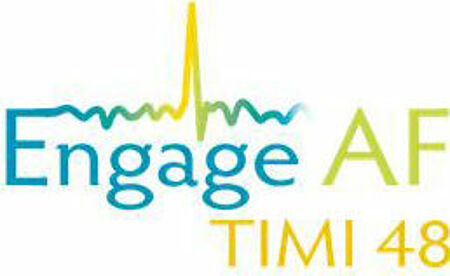
Thrombotic disorders arise when clots form in blood vessels. Clots in such places as the coronary artery, lungs, and brain can lead to death. Because clots form differently in arteries and veins, drug development processes are generally broken down into two categories: those that focus on antiplatelet agents and those that focus on anticoagulants. In the United States and Europe, Daiichi Sankyo has already launched the antiplatelet agent Effient® / Efient® (Prasugrel), which targets platelet aggregation in arteries.
The anticoagulant LIXIANA® (Edoxaban) is an oral, once-daily, direct factor Xa (pronounced “Ten A”) inhibitor. Factor Xa is one of the key components responsible for blood clotting, so inhibiting this makes the blood thin and less prone to clotting.
Once daily LIXIANA® received European Commission approval in June 2015 for the prevention of stroke and SE in adult patients with NVAF with one or more risk factors, such as congestive heart failure, hypertension, age ≥ 75 years, diabetes mellitus, prior stroke or transient ischaemic attack (TIA), as well as for the treatment of deep vein thrombosis (DVT) and pulmonary embolism (PE), and prevention of recurrent DVT and PE in adults. Edoxaban is currently marketed in several European countries, South Korea, the US and Japan, and was approved in Taiwan and Hong Kong. In other countries, regulatory review is ongoing.

Daiichi Sankyo has extensive experience with blood coagulation. In 1952, Shosuke Okamoto, a scientist at Kobe University, discovered the first anti-plasmin agent called epsilon-aminocaproic acid. It was further developed by Daiichi, has been marketed as Ipsilon® since 1962 and was the world's first anti-plasmin medicine. Plasmins are enzymes that play a key role in blood thinning. Therefore, the anti-plasmin is used to promote blood coagulation when patients are experiencing serious bleeding, among other things. The development of Ipsilon® was only one of the first steps in the company's extensive research activities in the field of haemostasis. Daiichi later found various factor Xa inhibitor candidates that prevent blood clotting. These extensive research experience has led to the development of edoxaban, an oral factor Xa inhibitor that is currently available in Japan for the prevention venous thromboembolism in patients under going orthopaedic surgery.

At a global level edoxaban has been tested in two phase III trials. ENGAGE AF-TIMI 48 for the treatment of stroke prevention and systemic embolic events in patients with atrial fibrillation and HOKUSAI VTE for the treatment and prevention of recurrent venous thromboembolism.



